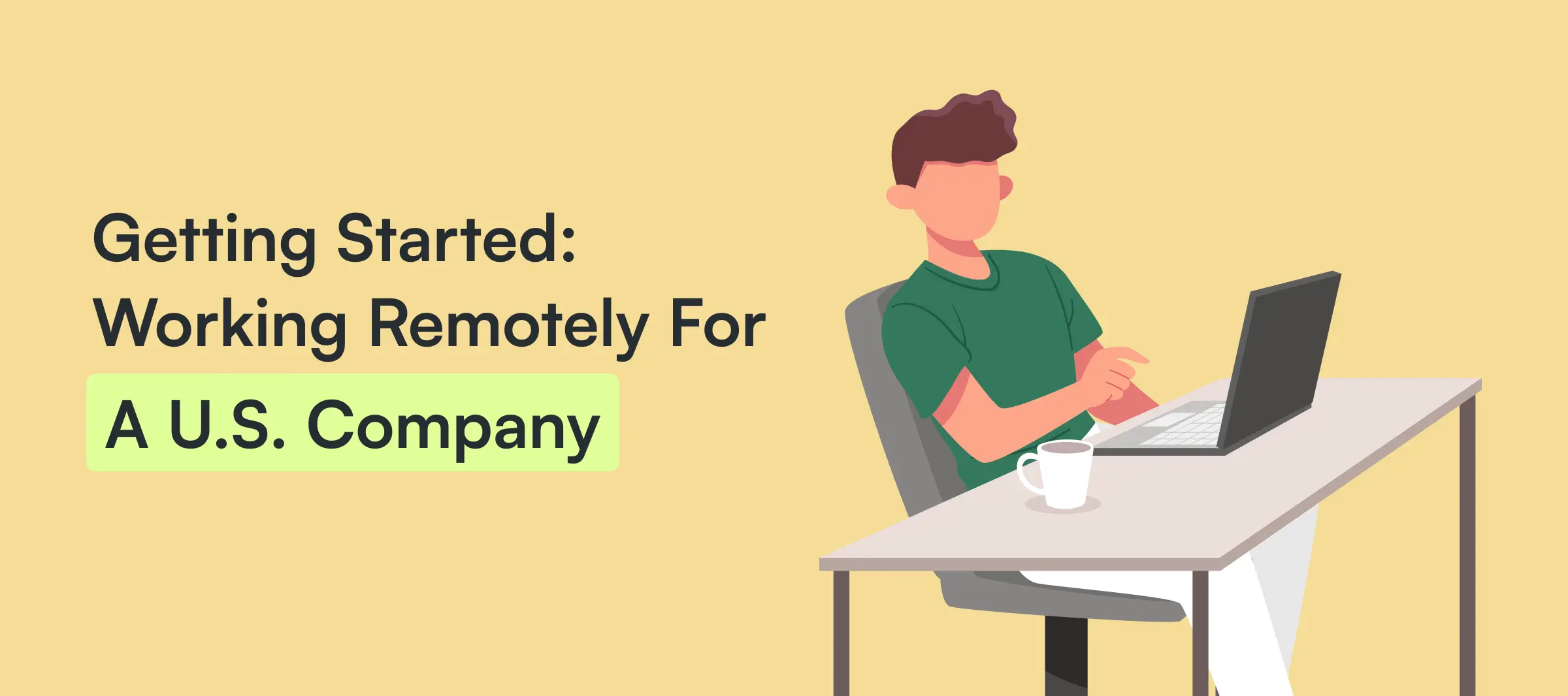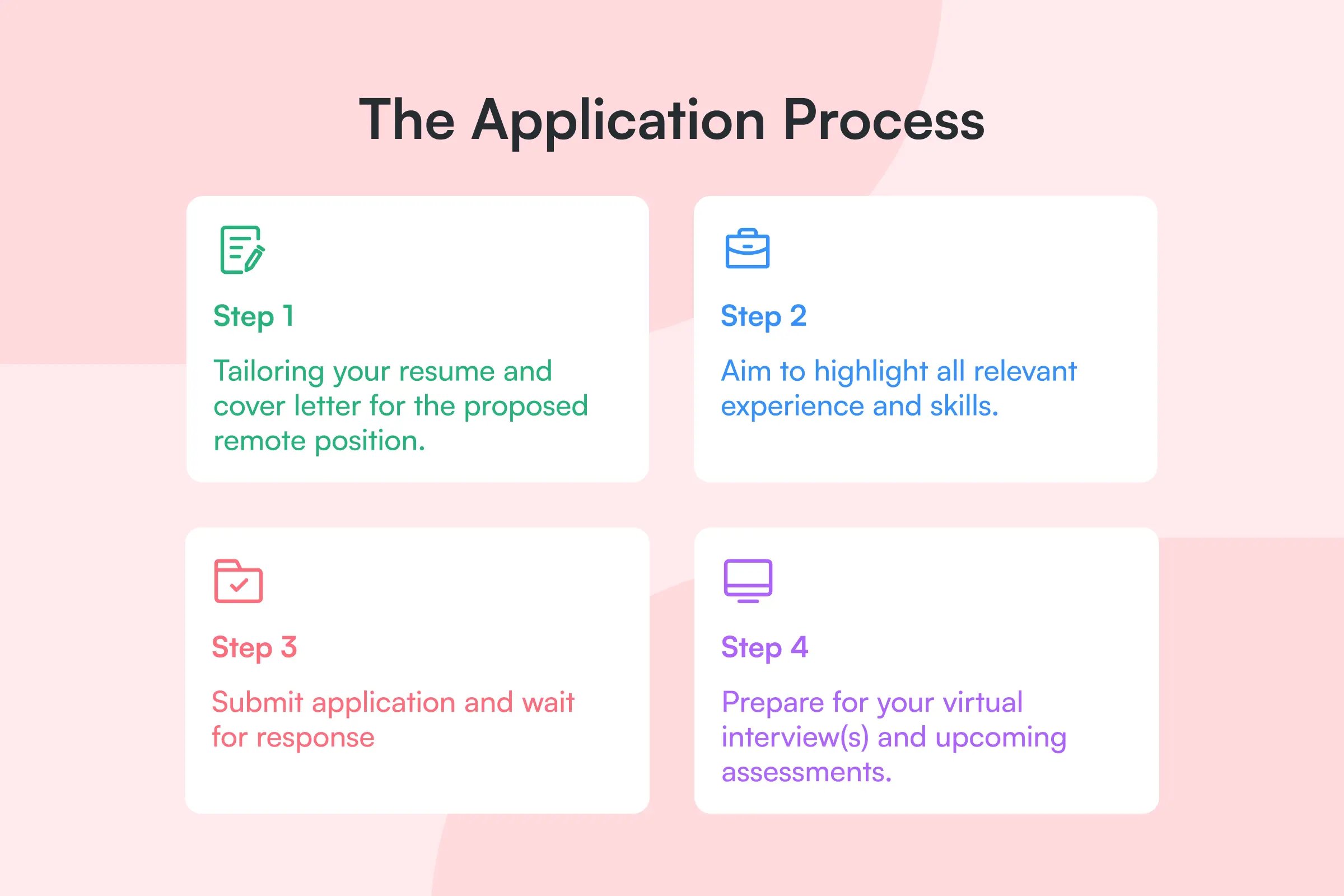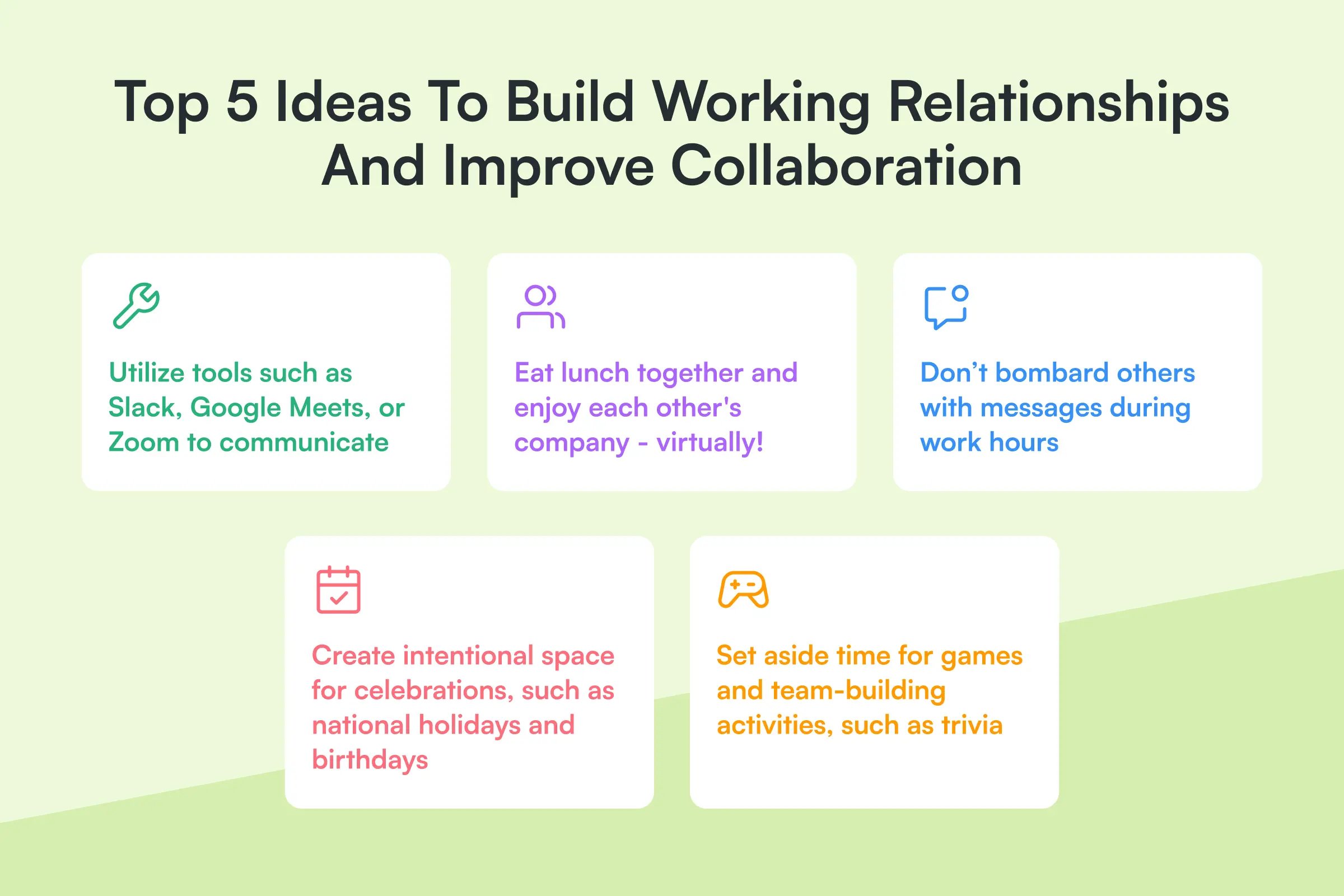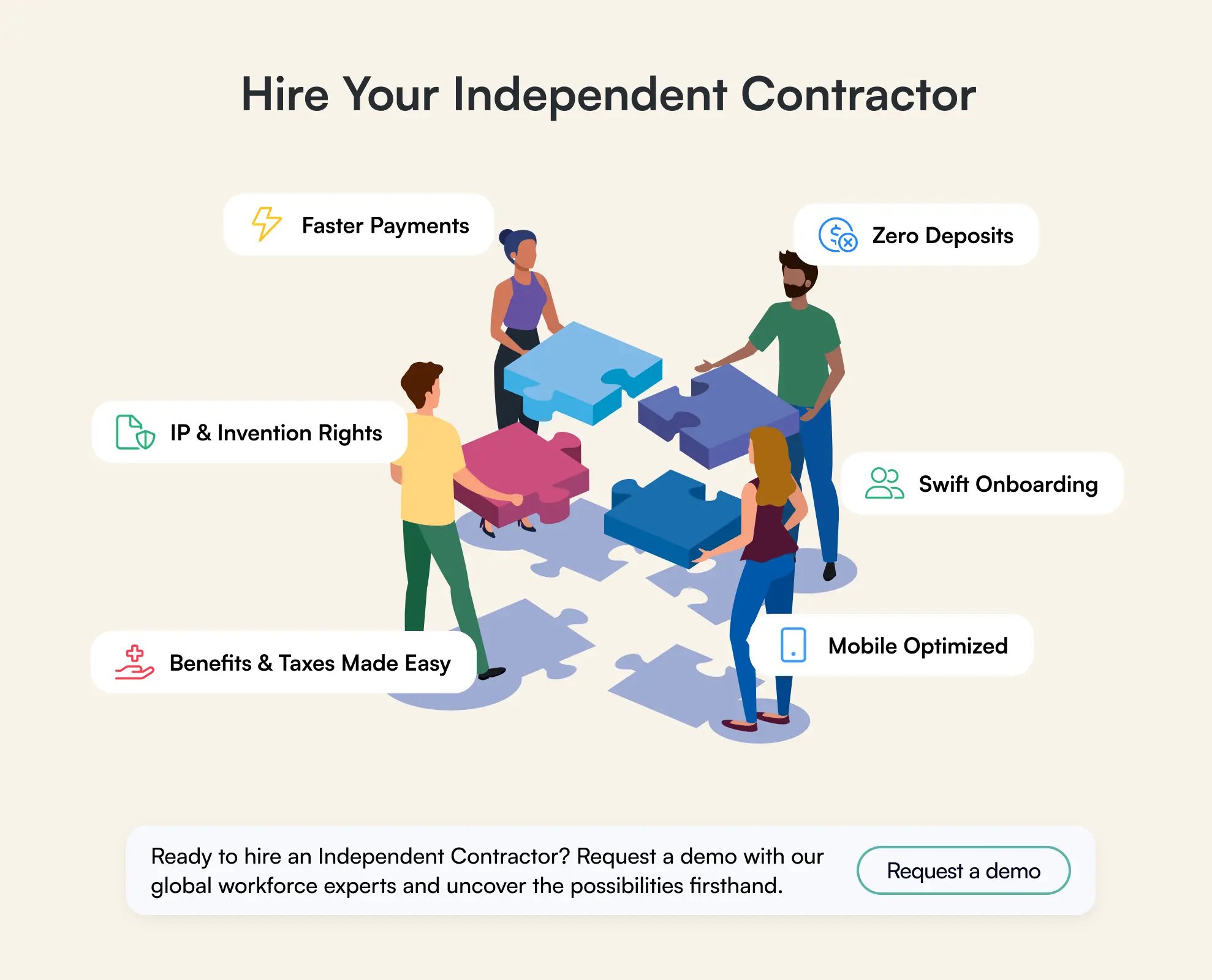Following the aftermath of the COVID-19 pandemic, employers around the world have adapted to remote work environments for many of their employees. While it was a necessary accommodation for those eligible during the early days of the pandemic, now it has become a perk that many employees look forward to.
Not only do many employees and independent contractors enjoy a remote or hybrid work arrangement, but many employers also find that this approach is not only more effective and productive - but also contributes to a more lucrative strategy.
With the rise of remote work, there is an added requirement to ensure that employees understand how to legally (and efficiently) work remotely. In this helpful guide, we will focus on Canadian employees and independent contractors looking to start working remotely abroad for a US company.

Getting Started: Working Remotely for a U.S. Company
Remote work allows an employee or independent contractor to work from a remote work environment, away from their workplace. This is often from the comfort and convenience of their home, but can also be a co-working space or other arrangement.
With the growing trend of Canadians working remotely for U.S. companies, employees and employers need to ensure that the process is completely legal and compliant - for all entities involved. From taxes and benefits to work visas, permits, and more, both employees and employers must ensure that the remote work arrangement is done properly.
Whether they are independent contractors, part or full-time employees.
Understanding the Legalities of Working Remotely for a U.S. Company
Work Visas and Permits
To legally work for a U.S. company, a Canadian citizen must obtain a valid work visa. This is known as a TN Visa.
You will require the following to be eligible for a TN Visa:
- Proof of your Canadian citizenship, such as a valid passport
- Pre-arranged full-time or part-time employment with a U.S. employer
- Qualifications in your industry, such as a college diploma or bachelor's degree
For more information about obtaining a TN Visa as a Canadian wishing to work remotely for a U.S. company, please visit the U.S. Department of State - Bureau of Consular Affairs website.
Pay Taxes
For Canadian residents who are working remotely for a U.S. company, you will be taxed on your worldwide income. Regardless of where the income is earned or the manner of employment, it will be taxed. It’s also important to note that your income must be converted into Canadian dollars when submitting your T1 form.
You must only report your U.S. income on your Canadian tax return. Upon employment with a U.S. company, you will receive a W2 form at the end of the year. This form outlines the income earned in USD, which you will then convert to CAD.
To prevent being taxed twice, also known as double taxation, you will also need to complete the W-8BEN form. This will help ensure you don’t pay U.S. taxes or incur any tax implications.
Finding Remote Job Opportunities in the U.S.
The first step to finding a qualified remote job opportunity, whether in Canada or the U.S., is by researching companies that hire remote workers. There are many tools and resources that can help you get started, such as GlassDoor and LinkedIn.
You should plan to utilize these resources, along with online job boards and other platforms, such as Indeed. Of course, networking, building connections, and doing your own research can also be helpful during this process.
We suggest making a list of companies that you have an interest in working for. Once you have identified the best options for full-time employees and independent contractors, the application process can begin!

Navigating the Application Process
Have you discovered a remote work opportunity for a U.S. company?
It’s time to begin the application process. The first step is tailoring your resume and cover letter for the proposed remote position. This will help to ensure that the employer has everything they need to know about you, your education, and work experience, as applicable to the position in question.
Throughout your resume, cover letter, and all documentation, you should aim to highlight all relevant experience and skills. This will help your application stand out and truly make a lasting impression on the employer!
Once your application has been submitted, it’s time to play the waiting game. Generally, an employer will contact you by email or phone to discuss the position and application. If you happen to hear from the employer, the next step is to prepare for your virtual interview(s) and upcoming assessments.
With a remote position, prepare for a remote interview. This may take place over the phone or a video call.
Here are some helpful tips to help you prepare for a remote interview:
- Find a quiet and private space for your interview.
- If the interview will be on camera, tidy your environment or blur your background on camera.
- Be presentable! Find an appropriate outfit and perform any grooming to smooth your appearance.
- Triple-check your connection, including your phone service and WIFI.
- “Arrive” to your interview at least 15 minutes before. This will help you to settle into your space and maintain a calm atmosphere.
- Showcase that you can work remotely through the nature of your virtual interview.
Good luck!
Setting Up Your Remote Work Environment
The key to a successful remote work arrangement?
The perfect remote work environment!
Choosing a space is the first step to setting up your remote work environment. This could be a spare bedroom, den, or area dedicated to being a personal home office. It should be a quiet and calm area, with the added ability to close the door to focus on your work and take the occasional call if needed.
Once your physical workspace has been established, obtaining a stable internet connection is essential. Not only should your Internet be reliable, but also have enough speed, bandwidth, and latency to support your scope of work.
Your computer should be equipped with all of the necessary software for remote work, along with any additional equipment, such as speakers, a mouse, and a keyboard.
Establishing Effective Communication
Effective communication is essential to a remote work relationship. As you begin your employment, we recommend speaking with your superior about communication processes, best practices, and tools utilized within the company.
This may include email, a group chat, or an instant messaging platform, like Slack. With help from the right tools, remote collaboration is possible!
By discussing their approach to communication with remote employees, you can better set and establish clear expectations with your U.S. employer.
Establishing effective communication can also help overcome language or cultural barriers, which is essential for those working remotely abroad for a U.S. company.
Managing Time and Work-Life Balance
Many remote workers will agree that managing time and maintaining a good work-life balance is exceptionally important. This approach will help you establish boundaries between your work and personal life and ensure that your work is completed properly and on time.
Create a Daily Routine and Schedule
To get started, we highly recommend creating a daily routine and schedule. This will help you begin your day on the right foot, as you will know exactly what to expect from your day - from the beginning!
When establishing a daily routine and schedule for your full-time employment, be sure to:
- Set aside time for a lunch break, along with small breaks throughout the day
- Move your body and get outside if possible while on a work break
- Consider last-minute meetings and phone calls that may interrupt your day
With the right approach, you can create a schedule that sets you up for long-term success! One that encompasses a better work-life balance than alternative approaches.
Set Boundaries
As mentioned above, boundaries are very important. Especially for those working remotely.
Since your home doubles as your workspace, a very fine line must be managed and respected. One of the most effective boundaries to set is your working hours. During these times, allow yourself to be accessible on your computer and phone, especially for meetings and last-minute work that may arise. Blocking off time in a calendar can also help to uphold these boundaries.
Outside of these working times, it’s important that you sign out of mobile apps, turn off notifications, and close your laptop! If the means of communication remain open, it can be difficult to ignore your work obligations.
Once your boundaries have been established, communicate them with your manager and coworkers. This will help set everyone up for success, and inspire others to also set healthy work-life boundaries!
Manage Distractions
Many remote workers admit to being distracted from time to time.
Especially when a load of laundry is ready to be changed or a package is being delivered, distractions can appear at a moment’s notice and take us away from our work.
To set yourself up for success, consider blocking out the distractions altogether. This could be done with a pair of noise-cancelling headphones, listening to music or a podcast, or simply closing your office door during work hours.
Building Relationships and Team Collaboration
Collaborating with your U.S. colleagues is more important than you may think!
The right approach to collaboration can help to establish relationships, build genuine connections, and lead to a more enjoyable work environment. Since you won’t have the added benefit of working together in person, collaborating with your peers and superiors alike is more important.
Participating in team-building activities is one of the most effective ways to foster virtual relationships with colleagues. The rise of remote work presents the need for more online team-building solutions, which is why many are available online today. With new technology and initiatives, connecting with your colleagues is simpler.

Top 5 Ideas to Build Working Relationships and Improve Collaboration
Looking for new ways to collaborate remotely? Here are five ideas to help you get started!
- Utilize tools such as Slack, Google Meets, or Zoom to communicate regularly
- Eat lunch together and enjoy each other's company - virtually!
- While communication is key, don’t bombard others with messages during work hours
- Create intentional space for celebrations, such as national holidays and birthdays
- Set aside time for games and team-building activities, such as trivia
With the right strategy and approach, you can enjoy stronger working relationships and effective collaboration.
Overcoming Challenges of Remote Work
With many work arrangements, whether remote or in-office, challenges are expected to occur. These challenges are not only expected, but they are completely normal. It is more important to create a plan to overcome them - and act on it.
Isolation and Motivation
While working within a remote environment, it’s understandable that you may experience feelings of isolation. Not only can remote work feel lonely from time to time, but it can also hurt your motivation.
An effective way to combat these challenges is by communicating with others. This could be communication with colleagues, family, or friends, to help mimic what would otherwise be office chatter and in-person interactions.
Not only will communicating with others throughout the day help you feel less isolated, but it can also leave you feeling both energized and motivated to continue an effective work day.
Addressing Stress and Burnout
Are you experiencing feelings of stress and burnout? While prevention is truly the best approach, you must address these feelings as soon as they begin.
This may include speaking with your superior about managing a more even workload, asking for help with a certain project, or simply scheduling some vacation time. After a time away, you can return feeling refreshed, rejuvenated, and ready to work.
Seek Support and Maintain Wellness
As mentioned above, a preventative approach is truly the best way to combat stress and burnout in a remote work environment. Seeking support is an ideal first step, as this can provide you with the regular opportunity to discuss your obstacles at work and find solutions.
When seeking support, we recommend finding a qualified mental health professional to speak with regularly. This may be a therapist, psychologist, or mental health counselor. With help from private health insurance through your employer, this process will hopefully be more convenient and attainable.
Alternatively, your family and friends may also be able to offer an ear to listen to and a shoulder to lean on. With the right support team in place, you can combat the challenges associated with remote work while maintaining overall wellness!
Our Final Thoughts When Working Remotely Abroad for a U.S. Company
If you are considering working remotely for a U.S. company, we can assure you that the benefits are truly worth looking into the opportunity. Once a valid work visa or permit has been obtained, tax information has been completed, and local labor laws are abided by, all that is left to do is establish an effective remote work environment!
With the right employer, Canadians can greatly enjoy exploring remote job opportunities in the U.S. If you require any additional information or guidance, your employer may be able to help. When in doubt, our team of international employment experts at Borderless is also here to help.
Contact Borderless Today - Services for Independent Contractors, Full Time Employees, and More!
Whether you are an independent contractor, part or full-time employee, our team of experts at Borderless are always here to provide your employer with guidance, support, and expertise to enable you to work from anywhere. Especially as you explore working remotely for a U.S. company!
Contact us today for more information or assistance getting started. For more helpful information and resources, we encourage you to browse the other articles!
Other articles you may enjoy include:
- A Guide to Hire in France as a Canadian Company
- Navigating Canadian Work Permits and Visa Options: Americans
- Remote Onboarding: How to Get it Right
Disclaimer
Borderless does not provide legal services or legal advice to anyone. This includes customers, contractors, employees, partners, and the general public. We are not lawyers or paralegals. Please read our full disclaimer here.




